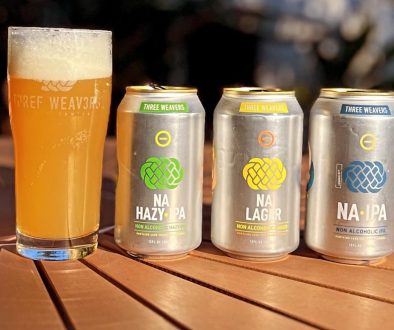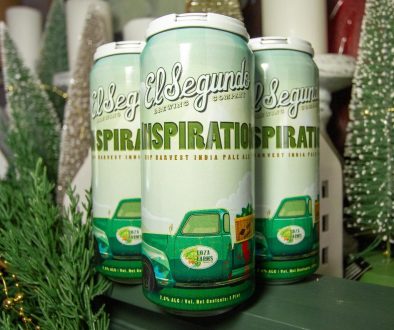No Gold No Silver for Belgian Style Witbier – How Does That Happen?
The World Beer Cup awards just came out for 2022, an exciting moment for brewers and beer geeks. Who made the best IPA/pilsner/fruity sour thing, and where can I get it?
But the buzz this year is not so much about the medals that were awarded, but about the ones that were not. In Category 68: Belgian-style witbier, with 102 entries in the category, only one medal, the bronze, was awarded; no silver, no gold. The concern – no, let’s be honest, the anger among brewers about this is exacerbated by the fact that the bronze went to Allagash White, a beer generally recognized as an exemplar of the style, often used as a touchstone for the category.
I wasn’t at the conference, but I watched the video of the presentations. When the Brewers Association’s Chris Swersey (in his final appearance; he’s retiring as head of this competition and the GABF judging) made the announcement that “Neither silver nor gold awards were awarded in this category,” you can hear people booing. A brewer friend of mine who was there told me they heard “That’s bullshit!” and “WTF?” out on the floor.
Well, yeah! Brewers spend a fair amount on entries: the beers, the time to fill out entries, packing and shipping, and the entry fees. And then to have the judges say, ‘Sorry, only one in a hundred of these beers even meets the standards for the lowest grade medal, see ya next year’? Why wouldn’t you be pissed?

I’m not saying that I think Allagash should have won the Gold. Though it is odd that the only medal awarded was to a beer generally considered a style paragon, and it was the Bronze. No, the point is that the judges should not be put in this position. By the competition, by the rules, or by the brewers. And make no mistake: all three of them could be culpable at one time or another.
Allow me to explain.
I have some personal insight on this. My bona fides: while I haven’t judged World Beer Cup, I’ve judged GABF four times, the New York State Brewers Association competition several times, the American Craft Spirits Association (ACSA) awards, Fred Minnick’s new Ascot Awards, and a smattering of homebrew competitions. I also wrote reviews for years for All About Beer and Whisky Advocate. I’m not new to the ideas of judging, or rules and guidelines for judges.
Much more relevantly, twice I have found myself at “that table” at high-level competitions where a group of judges made the decision to not award all of the three medals in the category. And as my colleague Andy Crouch tweeted after the WBC announcement, yes, there was some version of “Seriously, we’re really doing this?” said both times. But it did happen.
Here’s how it happens, the basic parameters that lead to the situation. To begin with, all the judging at the competitions is done blind. There are no hints, no ‘whoops’ moments, and there are no exceptions that I’ve ever heard about. The stewards pour all the beers in another room and deliver them, with only an identifying number. Brewers are asked not to judge categories where they’ve entered beers. So there’s an almost-nil chance of some kind of trickery…and if there were, all the judges at the table would have to be in on it. No way.
It is much more relevant to the matter at hand that the judging, at least in the GABF and WBC, has written guidelines. There are fairly detailed descriptions and parameters for each category (and sub-category, there are pages and pages of this stuff), and what the judges are looking for are beers that fit those descriptions.
A round of judging often starts with a quick whip-round of the table just to be sure everyone’s literally on the same page, and understands the style guidelines. Given new categories and regional differences in brewing styles, and because judges at national and international competitions may come from around the world, this is important. That’s how judging begins.
But it’s at the conclusion that the judging guidelines come into play. Here’s what the World Beer Cup posted as a prepared statement about how the medals are awarded (emphasis added):
Awards Philosophy
The World Beer Cup recognizes brewing excellence in 103 categories but does not automatically award the top three entries in a particular category. When judges determine that a category contains three excellent examples of the style, they present gold, silver, and bronze awards for the first, second, and third place beers, respectively.
Judges may choose not to designate any awards in a category if all beers entered in that category are significantly out of style or have major defects. The Competition Manager will cancel judging in any one category if fewer than three entries are received.
Also, judges may grant an award in any one or more of the three award places without granting awards in all three places. For example, judges may recognize a beer as a silver or bronze award winner; yet not grant a gold award.
What the hell does that mean? It means that if, say, 20 of the beers are truly excellent examples of the style, only the three that are quiveringly close to perfect will get medals. But if none of the beers match up to the style in a sure enough manner, no gold is awarded, for example. Here’s what the judging guidelines for awarding the medals at the end of the round actually say (emphasis added).
GOLD: A world class beer that accurately exemplifies the specified style, displaying the proper balance of taste, aroma and appearance.
SILVER: An excellent beer that may vary slightly from style parameters while maintaining close adherence to the style and displaying excellent taste, aroma, and appearance.
BRONZE A fine example of the style that may vary slightly from style parameters and/or have minor defects in taste, aroma, or appearance.
What the “vary slightly” and “minor defects” mean is that in the World Beer Cup, and in other equally serious competitions, “gold, silver, bronze” is not the equivalent of “first, second, third.” It looks that way, and it often is, but that’s misleading. There are levels of excellence here, and in a three-medal awards system, that’s a bit confusing.
There are other competitions, some of them quite respected, where there are multiple medal winners in the same category. These are excellence-level competitions: any beer (or spirit, or wine) that scores above a set number of points, or meets certain levels of excellence, gets a gold, not just the single very-best-on-that-day-to-those-people beer. There may be 10 gold medals awarded in pilsners, for example.
Is one type of competition better than the other? Both approaches can be problematic. The multiple-medal competitions are criticized as being ‘medal machines’: you pay your fee, and unless your beer totally sucks, you’ll get a medal. The 1-2-3 competitions face criticism that medals are crapshoots; there may have been 10 or 20 beers that could (or should) have won medals on the table that day, the ones that won were just luck of the draw of judges’ palates. And both of those criticisms may be valid.
But both competitions are also valid. The multiple-medal competitions recognize that there is often more than one outstanding examples of the style. The 1-2-3 competitions recognize that being the very best has merit and should be recognized.
It’s when you have a hybrid, a 1-2-3 competition with levels of excellence, that things get a little confusing. Silver means either ‘great, just not quite as good as gold’; or ‘not really as good as gold, but pretty good.’ Thing is, you don’t know which it was…unless a medal isn’t awarded. (The brewer knows, because they can read the judges’ comments, but they’re probably not talking.)
I believe that the confusion and anger when medals aren’t awarded stems from the purpose of these competitions not being clear. What does the “Awards Philosophy” say? The very first words are “The World Beer Cup recognizes brewing excellence.” So awarding a medal to a beer that wasn’t excellent, but still came in second, misses the point as agreed to by the Brewers Association, which runs the competition.
What the hell is the point, then? Despite what brewers understandably believe, it’s not to hand out medals. That’s some of it, but the main point of these competitions is to improve brewing overall, like motor sports are supposed to do for cars.
Craft spirits is running things the same way. I asked Jeff Wuslich, co-founder of Cardinal Spirits in Bloomington, IN, who works on the ACSA competitions, about whether this medal-skipping happened in the ACSA competition.
“Yes, something similar has happened from time to time in the competitions,” he said. “It boils down to, ‘What is the purpose of the competition?’ Is it to just pump out medals to whomever enters? We all know competitions like that. I’m not sure they provide a real service to the consumers or the producers, but they make you feel good.
“ACSA has always had the opinion that we want to elevate craft spirits,” he explained. “We think the feedback provided by judges in their notes is just as important as the medals. Hopefully, the producer takes the feedback and thinks about ways to improve the spirit. Or, if they don’t agree with the feedback, maybe they can position the spirit in the market in a way that people will appreciate it.”
Noble goal, but…we still have Allagash White getting a bronze medal and no other beer doing better, in a category that’s represents 30 years or more of American craft brewing experience. Hell, Rob Tod has been making Allagash since 1995, you’d think he’d get it right enough to win a gold by now! And you’d be right; Allagash White has won three golds in World Beer Cup competitions, and three more in the GABF. What happened here?
Truthfully: we don’t know. For example, packaging and freshness have been issues since the first beer competitions. Fresher beers have a clear edge, but how do you compensate for that?
Or maybe it was the judging. Individual judging panels vary every year. People with different ideas about the style, with different levels of judging experience, bring different personalities to the table. I know I’ve been a table captain at times and had to deal with brewers who were extremely certain of the correctness of their position. The judging guidelines are only guidelines, with necessarily subjective levels of ‘excellence.’ Some judges take that a LOT more seriously than others, and they’re persuasive, or just stubborn, and the others will give in to their arguments.
It ain’t a perfect world.
But as I say to people who complain about the Electoral College, if you don’t like the way the rules are, work to change them. If you’re a brewer who thinks that every medal in every category should always be awarded, because we’ve reached the point as an industry where common levels of excellence are understood and achieved – or, hell, just because – then get organized, find other brewers who feel the same way, and get the rules changed.
Or don’t. But if you don’t agree with it, and you don’t do anything about it, you’re just going to be pissed when it happens again. Savvy? Now get out there and brew, or drink, and stop worrying about this. There are a lot more important things, even in beer.
Lew Bryson is the Senior Drinks Writer at The Daily Beast. Contributor to Bourbon+, Craft Spirits Magazine.
Author of Whiskey Master Class, Harvard Common Press (2/18/2020 release); “To enhance your knowledge in the magical world of distilling, my friend Lew Bryson is the perfect place to start.” — Colum Egan, Bushmills master distiller
Another great whiskey book I wrote: Tasting Whiskey, Storey Publishing; “Tasting Whiskey is a book that I would have loved to have had close at hand when I first started getting into whiskey.” — David Wondrich, author of Imbibe and Punch




